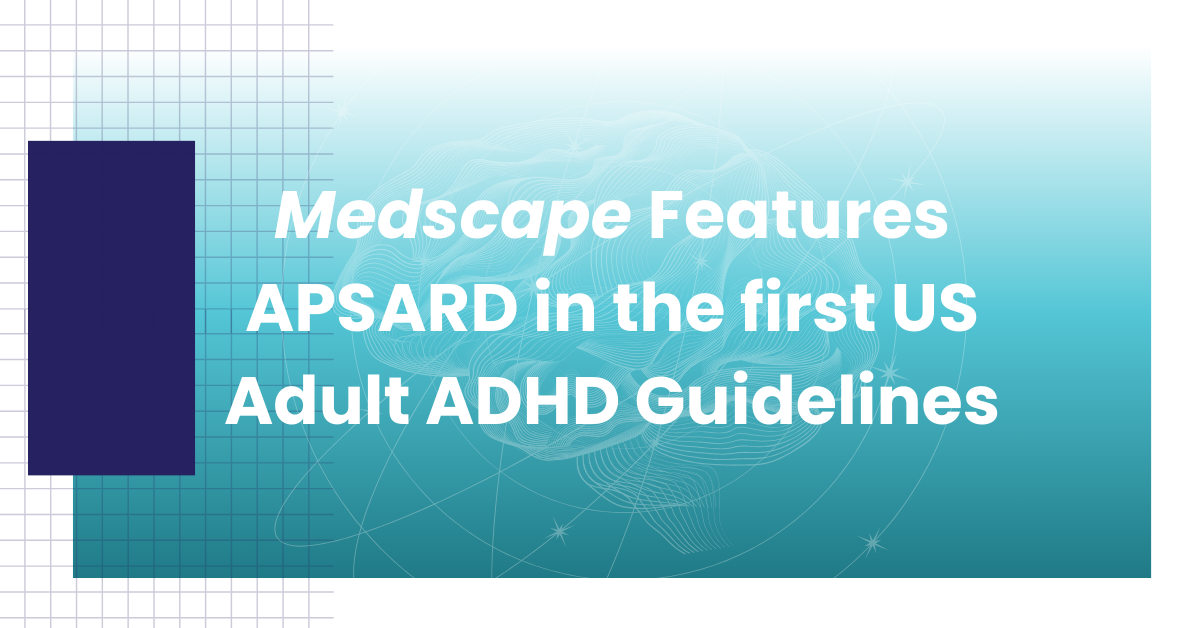Attached is an important update of the European Consensus statement regarding the diagnosis and treatment of adult ADHD. This is yet another important resource that includes several APSARD members as authors.
CLICK HERE TO VIEW THE FULL PAPER.
Abstract
Background Attention-deficit/hyperactivity disorder (ADHD) is among the most common psychiatric disorders of childhood that often persists into adulthood and old age. Yet ADHD is currently underdiagnosed and undertreated in many European countries, leading to chronicity of symptoms and impairment, due to lack of, or ineffective treatment, and higher costs of illness.
Methods The European Network Adult ADHD and the Section for Neurodevelopmental Disorders Across the Lifespan (NDAL) of the European Psychiatric Association (EPA), aim to increase awareness and knowledge of adult ADHD in and outside Europe. This Updated European Consensus Statement aims to support clinicians with research evidence and clinical experience from 63 experts of European and other countries in which ADHD in adults is recognized and treated.
Results Besides reviewing the latest research on prevalence, persistence, genetics and neurobiology of ADHD, three major questions are addressed: (1) What is the clinical picture of ADHD in adults? (2) How should ADHD be properly diagnosed in adults? (3) How should adult ADHDbe effectively treated?
Conclusions ADHD often presents as a lifelong impairing condition. The stigma surrounding ADHD, mainly due to lack of knowledge, increases the suffering of patients. Education on the lifespan perspective, diagnostic assessment, and treatment of ADHD must increase for students of general and mental health, and for psychiatry professionals. Instruments for screening and diagnosis of ADHD in adults are available, as are effective evidence-based treatments for ADHD and its negative outcomes. More research is needed on gender differences, and in older adults with ADHD.

